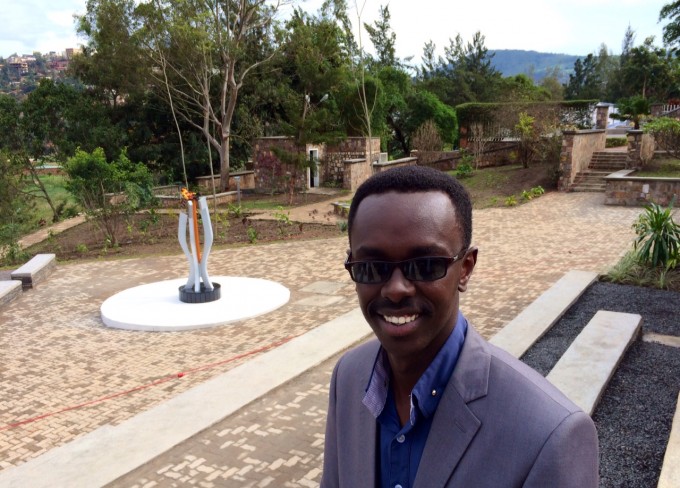Rwanda: Creating a Peace Building Education – Meeting the Face of Aegis
Back in January I had the opportunity to talk with public health expert Josh Ruxin for a Good Food segment (scroll down to listen). His book A Thousand Hills to Heaven chronicles how his family and work life in Rwanda unfolded in the aftermath of the 1994 Genocide. Josh was there to help create a public health infrastructure in Mayange, the epicenter of the genocide. He and his wife opened a restaurant in Kigali called Heaven.
It is difficult for us to understand or even take in a failure of humanity as comprehensive as the unchecked neighbor on neighbor killing that went on in Rwanda. For me, reading Josh’s thoughts are a useful primer coming as they do from someone committed to daily life in a difficult place with wife and children as the place itself was beginning to be remade. He shares insights on the political history of the country and brutality that occurred through stories of how colleagues managed to pick up the pieces and eventually even thrive. I read the book twice. I think many of us marvel at the resilience of people and communities in the face of such loss. And we feel shame that that too often now the world community stands by and does nothing.
Which is how I happened to be in a friend’s dining room a few nights ago listening to Glen Ford, the Director of Development of the Aegis Trust and Honore Gatera Umwana w’Umwani, Manager of the Kigali Genocide Memorial. It was an unusual gathering in that it wasn’t for the purpose of fundraising, but rather to simply listen, ask questions and have a conversation about huge things like Genocide and Humanity. And to hear the epidemiological view of the possibility of preventing such a thing from happening again (even while it is happening now in Central Africa). Their powerful message and the the heart of the conversation focused on finding and reinforcing simple humanity in the daily interaction between people who view each as “the other” until the “other” recedes and suffuses into, “us”. What a profound and difficult act this can be in a world where children in our own streets are gunned down for crossing into someone’s “territory” or where (once again) in the Ukraine, Jews are asked to register with municipal authorities.
It is a luxury to be able to sit in comfort and be asked simply to contemplate these issues as Aegis launches it’s Global Centre for Humanity, a new international institute at the Kigali Genocide Museum on the site where 250,000 souls are buried.
- To see a world free of the extreme hatred that leads to mass violence.
- Aegis is rooted in the response of a single British family, the Smith family, that set out to bring comfort to survivors of mass violence, first the Holocaust and now Rwanda, through giving dignity to their loss and strengthening them to be teachers of humanity. It is through the darkness of this terrible suffering that they bring light and hope to millions of young people, inspiring them – and us – to stand up for humanity in our own communities.
- In sharing small acts of humanity we make the world a better place, inspiring others to do likewise – and creating communities that are resistant against the extreme hatred that leads to mass violence.
- Such problems can seem overwhelming, but we encourage people to simply do what they can in sharing their own humanity, and to know that this is enough. Aegis means shield – to protect the vulnerable, and to provide a sword through education
- to strike at the heart of the prejudice and discrimination that leads to divided communities.

